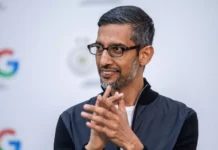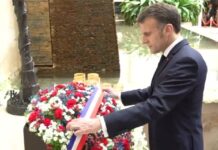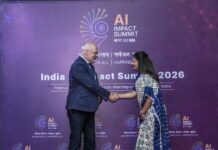 MUMBAI: Pitching for greater cashless banking transactions, Prime Minister Narendra Modi today said this can be the best solution for the problem of black money, even as he asked banks to look for ways to discourage people from investing huge amounts in gold.
MUMBAI: Pitching for greater cashless banking transactions, Prime Minister Narendra Modi today said this can be the best solution for the problem of black money, even as he asked banks to look for ways to discourage people from investing huge amounts in gold.
Modi also asked banks to become socially more responsible and provide support to ‘swachhta’ entrepreneurs or those setting up cleanliness and waste management ventures.
He said banks in India should compete for achieving maximum cashless transactions, as this would be the “best solution” to the problem of black money.
“Of many solutions to tame black money, cashless transaction is one of the very important solutions. This is a very big opportunity and we should promote this. People should inculcate the habit of cashless transaction,” he said.
Black money has been a major political issue in the recent past, including in the Lok Sabha polls last year in which Modi led BJP and its allies to a landslide victory.
Modi also said Indians have a good habit of savings, but these savings have diverted to gold over the time as a measure of security and banks have a challenge to look into ways to discourage huge amounts of money being kept in gold.
The Prime Minister said people in India had a propensity towards saving, but this was targeted towards gold.
“He thinks he should buy gold which can be needed at the times of crisis. I don’t think out of 100 people, one person would feel the necessity of selling gold at the time of crisis…but it is a psychology.
“The challenge for banks was to assure people that a bank account would ensure easy access to their savings whenever required,” he said, while adding this could help banks become the agents of social transformation.
The Prime Minister was speaking at a function here this evening to dedicate an ‘ICICI Digital Village’ to the nation.
ICICI Bank has adopted Akodara village in Gujarat to develop it into a ‘digital village’ by providing facilities like cashless banking, e-health, as also digitised schools and mandis. . “The region, including India subcontinent and China, is one of the regions in the world where people have habit of savings. We have the tradition where people save for the next generations to come,” Modi said.
“There are parts in the world having credit card culture and people get credit cards in their hands and nothing else.
But, here we have a different way of thinking. We have a tradition of saving.
“But over the time, though the habit of saving remains, it has diverted to gold as a measure of security. They think that gold will be of use in challenging times. We have the psychology that gold will help in our times of need,” he added.
The government has been trying to dissuade people from investing huge amounts in gold and put their savings into more productive financial market assets.
“Banking sector has a challenge in developing credibility among the common mass to get the habit of a bank account, instead of buying gold… This way, people can be deterred from buying gold,” Modi said.
“This can lead to a very big change in the Indian economy.
A very big section of our society keeps more than required gold as a measure of safety for future. Banks have a golden opportunity to become an alternative,” he added.
The Prime Minister, who last year launched a ‘Swachh Bharat’ initiative, also said that the banks need to take up social cause and finance ‘Swachhata’ or cleanliness entrepreneurs.
“Can we create swachhta entrepreneurs? There is immense scope in solid waste management and water treatment,” he said.
While congratulating ICICI and its leaders on the group’s 60 years, Modi said that the senior team can think about what would they achieve when the group are 75 and what would be there social charter.
He also asked the banks to come out with a social charter for nation’s development.
Modi said that rural development is one of the opportunities to improve the country’s GDP, while digitization of villages will help in rural development.
He also said that banks can become an agent of social transformation.
“There are people from a village in Sabarkantha who have joined us. This village is unique because it also has a cattle hostel,” he added.–PTI






